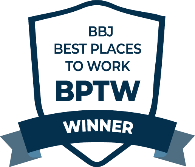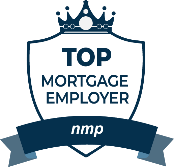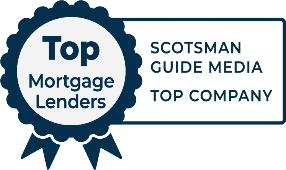Unless you are a professional in the real estate industry, you probably have many questions when it comes to buying a home. But having a list of questions is just the start—knowing the answers to your questions puts you ahead of the game.
To help ground you in this long and nuanced process, here are the answers to some of the most commonly asked questions in the home buying process.
1. What is a typical down payment?
There is a good reason why this question is at the top of the list. Your down payment is the first major financial investment in a piece of property. It determines monthly payments and the cost of the property over time.
In the past, a 20 percent down payment was common. These days, many loans will accept between 3-5 percent, and some require no down payment. For example:
- Veterans Affairs (VA) or United States Department of Agriculture (USDA) loans do not require a down payment.
- Most first-time homebuyers can expect to pay at least a 5 percent down payment on a conventional loan.
- A jumbo loan—which is a type of financing that exceeds the limits set by the Federal Housing Finance Agency—requires 10-20 percent.
The details of a loan differ from one borrower to the next, so consult with your Loan Officer to ensure you get the best loan for your situation.
2. What credit score do I need to qualify for a mortgage?
Credit scores are an essential part of the home-buying process. The better your credit score, the more likely you are to receive a loan with a desirable interest rate:
- A good credit score falls between 670 and 739. This score is standard for a conventional mortgage loan.
- Lower credit scores make it more difficult to qualify for a loan, but certain loan types—such as a Federal Housing Authority (FHA) Loan—do not have a minimum credit score. That said, a score lower than 500 makes it unlikely for the borrower to obtain approval.
As with most financial aspects of the home-buying process, there will be exceptions depending on other factors. Consider these factors when determining what credit score is needed to buy a house.
3. Which documents do I need for pre-qualification?
Getting pre-approved for a loan lets sellers know that you are serious about buying a home. This can be especially beneficial in competitive real estate markets.
Pre-approval requires a hard credit check and review of all your financial information by an underwriter. The relevant documents to prove income include:
- Your two most recent pay stubs.
- Two years of your most recent W-2 or 1099 forms.
- Your two most recent bank statements.
Having the documents is one thing—ensuring they are readable is another. Rather than sending screenshots, scan your documents into PDFs to ensure they are presentable and readable.
4. What is included in closing costs?
Many borrowers walk into the home-buying process with enough money for a down payment but not enough for closing costs. These costs are often overlooked, so be sure to have funds for:
- Appraisal fees
- Credit report fees
- Prepaids and escrows, which include property taxes and insurance
- Title fees, which include recording fees, settlement fees, and transfer taxes (in some states)
- Origination fees
- Tax service fees
- Flood certificate fees
If you’re not sure you can afford these costs, use a payment calculator. Also, be sure to have additional savings after closing costs to account for the first few months of mortgage payments and any unexpected expenses.
5. Does the type of property impact the loan type?
The type of property you choose can affect the down payment, interest rate, and loan program. Manufactured homes, commercial-residential properties, and condos differ in the types of loans allowed and the stringency applied to lending approval. Additionally, if you’re interested in different property types, you will need to receive multiple pre-approvals.
If you are interested in different types of properties, keep in contact with your lender so they can better anticipate loans, down payments, and pre-approvals.
6. When should I loop my lender in?
Anytime you are serious about a property, let your lender know so they can research the property and see if they can lend based on taxes, homeowner’s association (HOA) fees, and other factors. This will also help them ensure that you qualify for a pre-approval letter specific to the property type.
Bottom line: The better prepared your Loan Officer is, the better chance you have of getting under contract.
7. Should I purchase mortgage insurance?
In some scenarios, you won’t have a choice. If your down payment is less than 20 percent, mortgage insurance is required.
Although many people believe that mortgage insurance is an unneeded cost, it can be an excellent financial decision. For example:
- Even if you have enough money for a 20 percent down payment, you might consider putting down less if your investments are working for you.
- By putting down less and paying a small monthly mortgage insurance fee, your money continues to accrue interest in the investment account.
- You could also use this money for the cost of furniture or as a cash reserve.
When a mortgage is insured, the loan is less risky, making the interest rate lower.
8. Which mortgages are available?
Your lender will select the best mortgage for your circumstances based on your credit score, income level, property location, and more.
Here are some loans to consider:
- A conventional mortgage is one of the most common types of mortgage. A few highlights include putting down as little as 3 percent with the purchase of mortgage insurance, a credit score of 620 or above, a low debt-to-income ratio, and secure employment.
- Government-backed loans have stricter regulations, but also flexible underwriting requirements and lower down payments.
- Jumbo loans are for financing homes worth more than the conventional loan limit, which changes every year.
- An adjustable-rate mortgage (ARM) has a fixed rate for the first few years of the loan, followed by rate fluctuations at set intervals.











